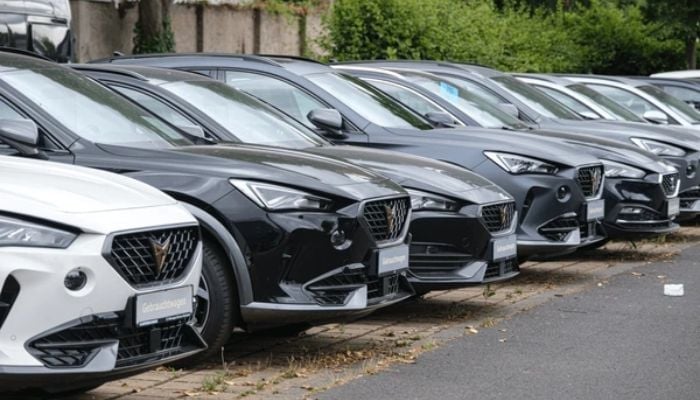
An undated image of cars. — Shutterstock
The federal government plans to announce new policies on imports of used cars for overseas Pakistanis to correlate the personal baggage scheme and gift schemes with the new five-year commercial import policy, set to be effective on October 1, 2025.
Commerce Secretary Jawad Paul informed the National Assembly Standing Committee that vehicles over five years old will have duties of 40% imposed on them, which is expected to gradually drop by 10% per year.
He said that the personal baggage scheme and the schemes of giving gifts could be combined, but there will be no combination of the transfer-of-residence scheme.
The committee members, Usama Ahmed Mela and Gul Asghar Khan, sought information on used car imports and electric cars with respect to how they may affect the foreign exchange reserves of the country.
Personal baggage scheme
With personal baggage scheme, overseas Pakistanis can bring back a used car when returning home, under certain conditions.
Gift scheme
With gift scheme, overseas Pakistanis can send a used car as a gift to their family members in country, again under special duty rules.
It is worth noting that, these schemes were designed to help the diaspora support their families and enjoy some benefits when relocating or visiting Pakistan.
New commercial import policy
- Beginning date: October 1, 2025
- Duty structure: Extra duty on used car imports will gradually drop each year.
| Year | Additional duty |
| 2025–26 | 40% on top of existing taxes |
| 2026–27 | 30% |
| 2027–28 | 20% |
| 2028–29 | 10% |
| 2029–30 | 0% (only standard taxes apply) |
Notably, the new set of regulations issued by the government to overseas Pakistanis is meant to facilitate the importation of used cars without breaching the fiscal and commercial concerns of the government.
Under the upcoming policy, both of these schemes may be “clubbed together” into the larger commercial import framework. The transfer of residence scheme is expected to remain separate.
















